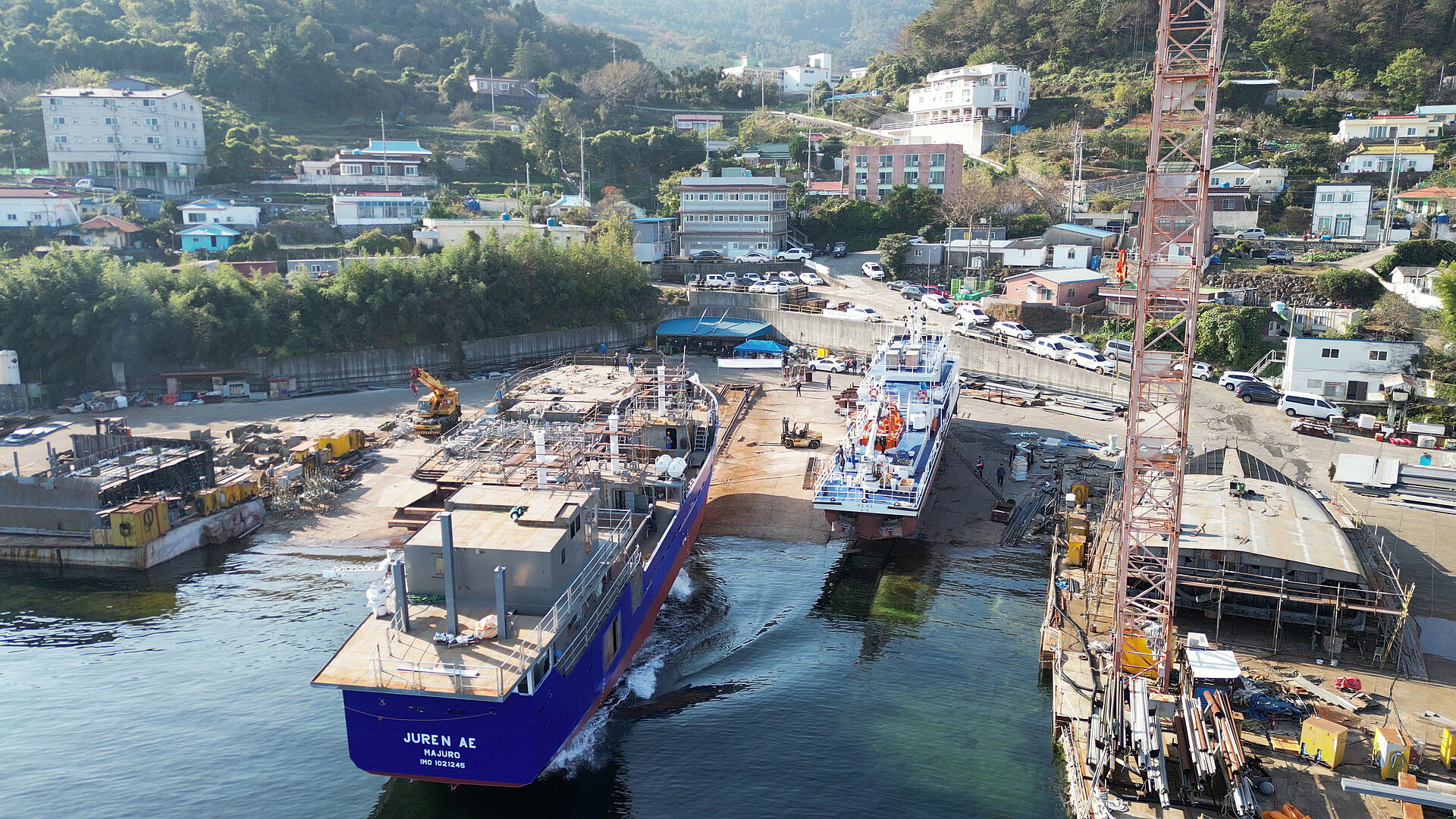
Marshall Islands supply vessel launched

Launching of the island supply vessel with sail propulsion for the Marshall Islands.
(Source: Hochschule Emden/Leer)
A 48m-long hybrid island supply vessel has been launched at Asia Shipbuilding Co. Ltd. in Busan/Geoje, South Korea. The vessel is the result of a bilateral project financed by the International Climate Initiative and the Government of the Marshall Islands.
The vessel design, which combines sails, electric power, a battery pack, and a diesel back-up engine, has been developed with cooperation between Emden/Leer University of Applied Sciences, the German Society for International Cooperation (GIZ), ship design firm Kostec Co., and Hamburg design office, SDC. Leer-based Briese Research is also involved, overseeing the vessel’s construction and commissioning.
The 300dwt vessel will have a semi-automated Indosail wind propulsion system, originally developed in Hamburg by Peter Schenzle, a naval architect, for use in Indonesia. It has since been adapted for deployment in the Marshall Islands and is expected to give the ship a speed of around 12 knots from a sail area of 500m2.
If necessary, the propeller can be used to supply the vessel’s electrical system via a hybrid gearbox with attached generator. This can also be used as an electric drive motor for the propeller and for slow manoeuvring power requirements. A battery pack will store electrical energy and a 250-kW diesel engine will provide a back-up, giving the vessel a speed of about seven knots, even without sail propulsion. Regionally produced biodiesel will be used when the fuel becomes available.
Prof. Captain Michael Vahs from Emden/Leer University of Applied Sciences, which is coordinating the technological development, commented: “We are pleased that the newbuilding has reached this milestone and is now entering the final phase of outfitting. This will be very exciting for our construction supervisors in South Korea, as many technical systems now have to be installed and test run. Some fine-tuning is still required. Despite the relatively simple and cost-effective construction concept, there are many innovations in the ship that are exemplary for future zero-emission shipping.”
Kostec and Asia Shipbuilding plan to use the project to create a foothold for sailing technology and low-emission shipping in the South Korean shipbuilding market. The partners plan to continue the cooperation with Emden/Leer University of Applied Sciences to develop other vessels. They envisage that new designs will be available in various sizes, adapted to meet customers’ requirements, including a variant with fully automated Flettner rotors.
During the final phase of the project, Marshall Islands Shipping Corporation personnel will familiarise themselves with the vessel and its various technologies. A training programme will be developed for the shipping company by Emden/Leer University of Applied Sciences.
